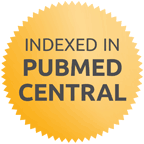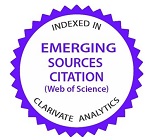Abstract
Introduction Ineffective anticancer therapy can result in unnecessary toxicity and the development of resistant clones. Many types of solid tumors, including head and neck squamous cell carcinoma, have been found to contain a small population of cancer stem cells (CSCs) that contribute to tumor propagation, maintenance, and treatment resistance. Materials and Methods Selectively enriched CSCs from primary cancer cell cultures can be used in a chemosensitivity assay for a functional test (ChemoID) that uses patients’ live tumor cells to indicate which chemotherapy agent (or “combinations”) will kill not only the bulk of tumor cells but also the CSCs that are known to cause cancer to recur. This study aimed to show the potential of testing the sensitivity of CSCs enriched from oral cancer patients’ biopsies to conventional chemotherapies. A case series of eleven patients affected by advanced oral squamous cell carcinoma (OSCC) have been included in this study. We compared the results of the CSC assay among all the patients and found that there was variability in the chemotherapy response predicted by the assay. Results Variability in chemotherapy response was found by the CSC assay in advanced OSCC patients suggesting more precise and personalized therapies to the Oncologist. Conclusions Variability in chemosensitivity for OSCC warrants the need to investigate further the use of the assay in larger cohorts to gain a broader understanding of the utility of the clinical test.
Recommended Citation
Spirito, Francesca; Claudio, Pier Paolo; Howard, Candace M.; Valluri, Jagan; Denning, Krista L.; Muzio, Lorenzo Lo; and Cortese, Antonio
(2023)
"A New and Effective Procedure for Advanced Oral Cancer Therapy: The Potential of a Cancer Stem Cell Assay in Guiding Chemotherapy,"
Translational Medicine @ UniSa: Vol. 25
:
Iss.
1
, Article 3.
Available at:
https://doi.org/10.37825/2239-9747.1042
15-11-2023 A New and Effective Procedure for Advanced Oral Cancer Therapy_ T (1).pdf (2690 kB)
Galley proofs corrected (revisions are in comment balloons)
Creative Commons License

This work is licensed under a Creative Commons Attribution-Noncommercial-No Derivative Works 4.0 License.
Included in
Health Communication Commons, Life Sciences Commons, Medicine and Health Sciences Commons




